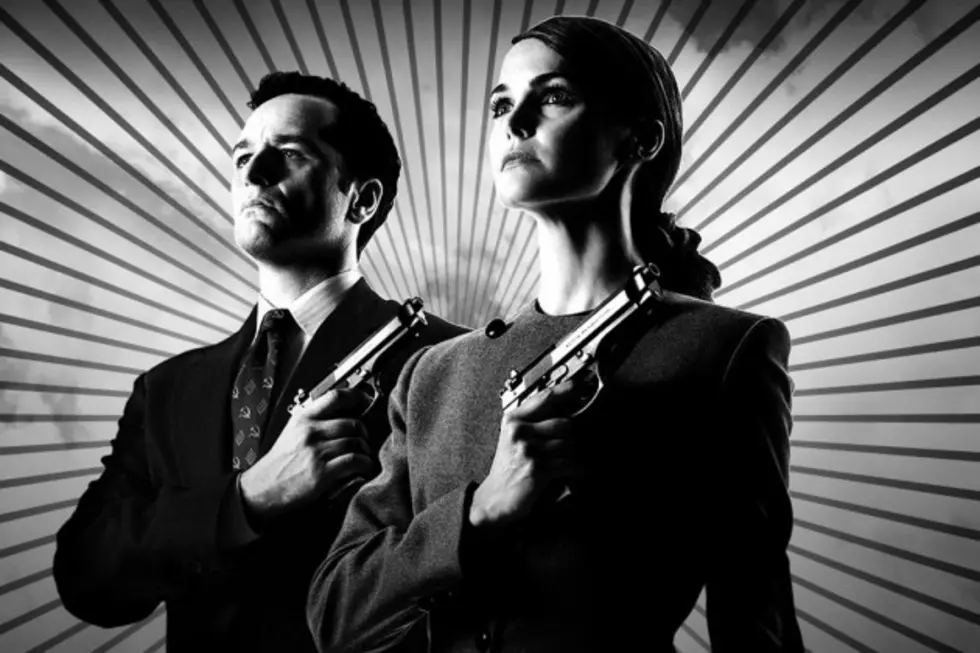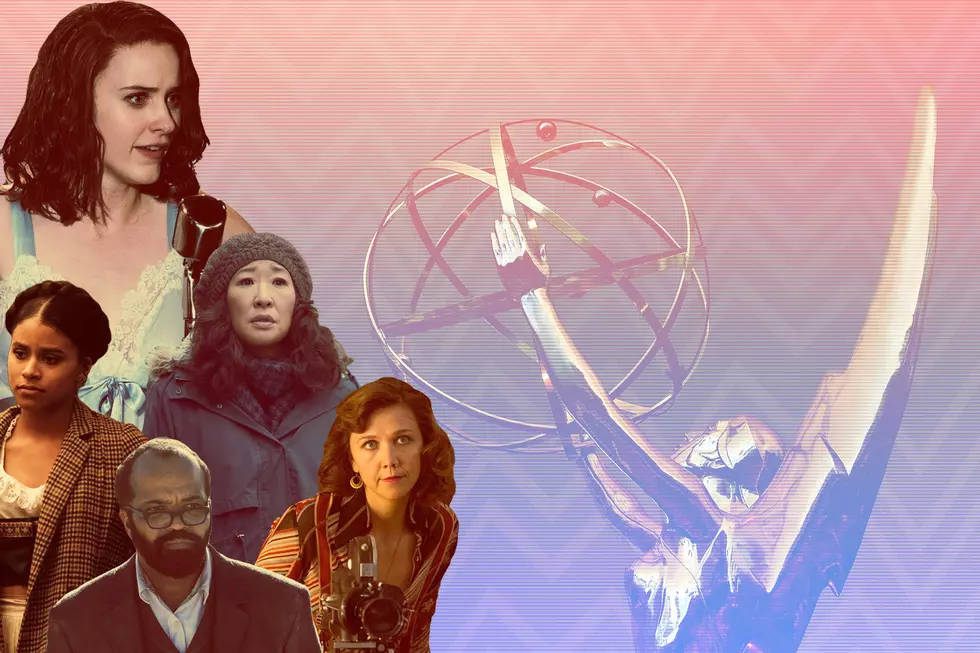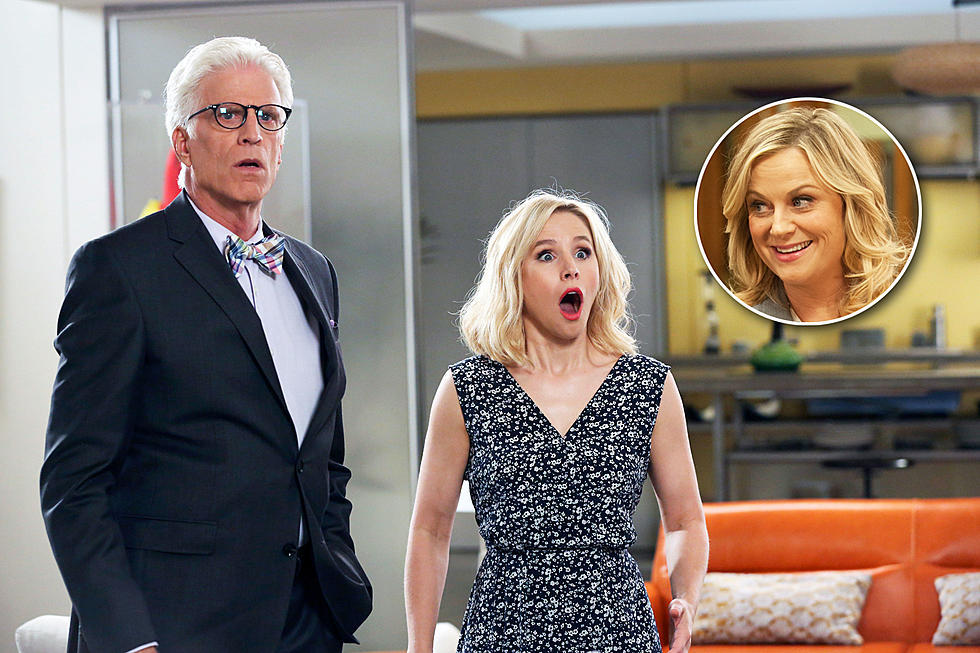
Monday Morning Critic: The Return of ‘The Americans’
Welcome back to another installment of the Monday Morning Critic. In this space each week, I’ll be looking at the week that was in addition to the week ahead in television. The format will shift each week, as the world of TV will dictate the form and content of each piece.
In this week’s installment: a review of the third season of ‘The Americans’ and a look at a recent example the true power of long-form narrative on TV.
In the past, I’ve taken an approach towards pilots that I will occasionally deploy here in the ‘MMC’: The 5 Questions And 500 Words approach. The title pretty much serves as a descriptor: Instead of overloading both you the reader and I the critic with an avalanche of words about all major pilots about to premiere, I’ll cut to the chase as quickly as possible in order to save you time and me some sanity. It’s hopefully a win-win situation. With that in mind, here is another such review.
‘The Americans’ returns to FX on January 28 at 10:00 pm EST
Last year, this show made your year-end “Best of 2014” list. How are things shaping up in season three?
Really, really well. ‘The Americans’ made as many if not more year-end list than any other show last year, and with good reason: It’s accessible, entertaining television that also has something important to say. The true strength of this show is that it’s always a character-based show first and a Cold War spy thriller second. I couldn’t begin to tell you the ins and outs of the latter, but I could wax poetic on the former for far longer than five hundred words.
If you could sum up the beauty of ‘The Americans’ in the form of an upcoming single scene, what would that scene be?
There’s a scene involving a pair of pliers during one of the four episodes sent for review that is gruesome on the surface yet one of the more intimate, beautiful scenes I’ve seen in the medium in quite some time. It’s a two-minute, worldless sequence that conveys more about what makes those characters tick than any amount of dialogue could possibly do. It’s a master class in shot selection and non-verbal communication. I can’t stop thinking about it.
If season one was about “parenting,” and season two was about “family,” what is the early theme of season three?
I’d probably say “personal agency.” Look, none of those three themes are original in any sense, but originality is overrated in this aspect. What ‘The Americans’ does is present that theme through the prism of a fascinating time in American/Soviet history and let that pressure force people into surprising, often dangerous territory. These countries spend a lot of time unsure what the other side is doing in this show, but more importantly, the characters on the front lines of this world of espionage misunderstanding what the other is doing. It’s a world that neither side can imagine not existing, even if those involved often spend a great deal of time wondering why it’s in place at all. These are people that are at war with each other without having the luxury of wondering why. In season three, a lot more people are looking under the surface and not liking what they see, on both a geopolitical and personal level.
Is Margo Martindale back now that ‘The Millers’ has been cancelled?
Producers have promised she’ll be back at some point, but due to real-life restrictions at the time of this second’s conception, ‘The Americans’ introduces a new figure in the form of Frank Langella as a re-activated handler in Claudia’s absence. As far as replacements go, that’s pretty darn awesome. Langella, unsurprisingly, fits right into the show’s sense of persistent, low-key menace that erupts at the most unlikely moment.
If I’ve never watched the show, should I jump in?
Look, it’s one of the best shows on TV, and so it would be silly for me to say stay away simply because certain moments won’t land as hard without context. But as I’ll argue in my next segment, there’s a benefit in starting from the beginning with certain programs that can’t be replaced by simply reading a Wikipedia page in order to understand the plot. The twists and turns that Elizabeth and Philip go through over those two seasons is writing/acting at its best, providing that rarified achievement where characters do things that surprise themselves but make perfect sense given what we already know about them. Fifteen years ago, ‘The Americans’ would have been a $40 million dollar movie that did really well during awards season. But Hollywood doesn’t make this type of movie anymore. Luckily, that means TV makes this kind of show. And we’re all the better for it.
It’s rare for a show to have one of its best episodes during its seventh season. That’s true primarily because so few shows make it to their seventh seasons. But it’s also true because the story engine that drives television programs generally runs out of steam long before that. I wrote about the most representative episodes of ‘Parks And Recreation’ a few weeks ago, which was my way of trying to pinpoint the underlying structure that makes this such a good show. In some ways, last Thursday’s “Leslie And Ron” wouldn’t fit on that list, not because it’s a bad episode but rather it serves as the exclamation point to the episodes on that aforementioned list.
Here’s what I mean by that, and what made “Leslie And Ron” so great. At a certain point, shows just keep retelling the same plots over and over again. There are just so many stories any one show can tell, and the differences ultimately boil down to window dressing. And that’s fine, whether it be a serialized show like ‘The Americans,’ a semi-serialized show such as ‘Parks,’ or a more formally procedural show like ‘Law & Order.’ These shows don’t work because of narrative innovation, although that’s always welcome in small doses. Think of “The Constant,” the universally loved episode of ‘Lost,’ which succeeded as a one-time break from form that would be unsustainable over the long haul. Stylized storytelling ultimately draws attention to itself, which in turn distances the audience from the show.
“Leslie And Ron” was as simple as possible, and therefore as effective as possible. It put two people in a room and let them talk for twenty minutes. This episode worked like gangbusters not just because of what Amy Poehler and Nick Offerman did during it, although their work was spectacular. And it wasn’t even what they had done over the past six plus seasons that helped land the episode’s more intimate moments with such power. The power truly lay in the audience’s long-time relationship with these fictional characters, a relationship that forms the backbone of what makes this medium so unique in terms of its emotional power.
It sounds both obvious and counterintuitive to place the power on this side of the screen. That seems to take away from the skill of those who makes televised entertainment. But what I’m actually trying to state is that the only job that people making television have is creating characters that people want to follow. That’s the alpha and the omega of the profession. Plot is just window dressing. I think back to HBO’s ‘Enlightened,’ a short-lived show that spent three episodes just following secondary characters and exposing their hopes, fears, and dreams. Those episodes didn’t add anything to the plot of ‘Enlightened,’ but they did add to the story of ‘Enlightened.’ The plot of that show had to do with a corporation slowly phasing out its employees in favor of technology. The story of ‘Enlightened’ concerned how people connect in an increasingly isolated world. The plot and the story were thematically connected, but only the story matters there and everywhere in television.
The story of ‘Parks’ concerns people made better by a woman who forced them to give a crap about their community. Harvest Festivals and City Council runs are just red herrings. “Leslie And Ron” is a near-perfect episode of television because it reduces the show’s central theme down to its purest form: The most independent man in the show’s core group admits just how much he wants to be part of a group of friends. Honestly, I’m getting choked up just thinking about it, and it’s partly due to the performance but also due to the fact that the show found a place seven years into its run to perfectly deploy this moment.
People who watch ‘Parks’ love it because they want to be part of this onscreen community as well. It was honestly discomforting to see Leslie and Ron fighting for those first three episodes. If that doesn’t demonstrate the potency of this show, I don’t know what does. I don’t know if anything in this final season will top this episode. But I do know that if nothing else but this episode works this well, the final season of ‘Parks’ was totally worth it.
More From ScreenCrush









